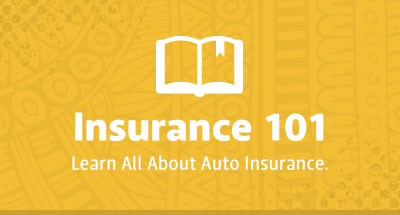Maximizing Your Tax Season Savings and How Personal Auto Insurance Can Help

As the annual tax season rolls around, many of us find ourselves diligently sorting through receipts, crunching numbers, and hoping for a favorable return. While tax preparation often focuses on income, deductions, and credits, there's one area that might not immediately come to mind but can significantly impact your finances: personal auto insurance.
Your vehicle is not only a mode of transportation but also a valuable asset that requires protection. Amidst the tax season hustle, taking a closer look at your auto insurance coverage can yield surprising savings and benefits. Let's explore how your personal auto insurance can play a vital role in maximizing your tax season.
1. Understanding Tax Deductible Expenses
Did you know that certain auto insurance expenses may be tax-deductible? While not all expenses related to your vehicle insurance are eligible, some specific circumstances may allow you to claim deductions. For example, if you use your vehicle for business purposes or have a portion of your insurance allocated to business use, you may qualify for deductions on premiums or other related expenses.
2. Reviewing Your Coverage Needs
Tax season presents an excellent opportunity to review your personal auto insurance coverage comprehensively. Evaluate whether your current coverage meets your needs or if adjustments are necessary. Life changes such as marriage, relocation, or the addition of a new driver in the household can all impact your insurance requirements. By reassessing your coverage during tax season, you can make sure that your insurance policy addresses your current needs while identifying areas for savings.
3. Utilizing Available Discounts
Many insurance providers offer various discounts that policyholders may not be fully aware of. Tax season is an ideal time to inquire about these discounts and take advantage of potential savings. From safe driving discounts to bundling multiple policies, exploring available discounts can result in significant reductions in your auto insurance premiums, ultimately contributing to your overall financial well-being.
4. Considering Tax-Advantaged Savings Accounts
Some individuals may have access to tax-advantaged savings accounts, such as Health Savings Accounts (HSAs) or Flexible Spending Accounts (FSAs), which can be used for certain medical expenses, including those related to auto accidents. While auto insurance premiums typically don't qualify for reimbursement from these accounts, medical expenses resulting from covered accidents may be eligible. Understanding the nuances of these accounts and how they intersect with your auto insurance coverage can lead to additional tax savings.
5. Seeking Professional Guidance
Navigating the intersection of tax season and personal auto insurance can be complex, especially for those with unique circumstances or specific financial goals. Consulting a knowledgeable tax advisor or insurance agent can provide valuable insights tailored to your individual situation. These professionals can help identify opportunities for tax savings, make sure everything is within compliance, and optimize your overall financial strategy.
As you delve into your tax preparations this season, don't overlook the potential impact of your personal auto insurance. By understanding tax-deductible expenses, reviewing your coverage needs, utilizing available discounts, considering tax-advantaged savings accounts, and seeking professional guidance, you can maximize your tax season savings while ensuring adequate protection for your vehicle and yourself.
At Illinois Vehicle Insurance, we're committed to helping our customers navigate the complexities of auto insurance and achieve their financial goals. For more personalized guidance and to explore how your auto insurance can work in tandem with your tax strategy, don't hesitate to reach out to our team. Together, let's make this tax season a rewarding and financially savvy experience.
Disclaimer
This material is for general informational purposes only. The content is provided on an “as is,” and “as available” basis without representation or warranty of any kind whatsoever. Kemper and its companies do not provide tax, legal or accounting advice and this information is not intended, nor should it be relied on for tax, legal or accounting advice. You should consult your own advisors for such advice prior to making any decisions concerning your business and corresponding tax, legal and accounting obligations.






